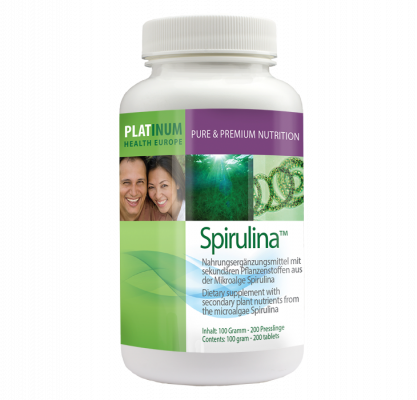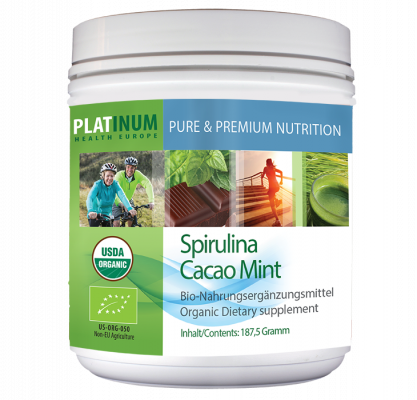Spirulina is known as an Aztec superfood. Consumed even by the Aztecs in early civilization times, providing us with proteins, nutrients, and vitamins. Spirulina is an algae that has grown in popularity as a supplement. It can be added to smoothies, yogurts, salads, soups, or juice. Taking a daily dose of spirulina has shown to help with allergies, diabetes, boost your immune system, help with digestion, and even battle certain cancers. Spirulina can be found in capsule, powder, or dried form.
How much spirulina should I take?
There is no actual dosage recommendation for spirulina. Studies usually research dosages ranging from 1-10 grams daily. Some people think that 5 grams of daily use is a good place to start. On the packaging of whatever type of spirulina you buy should have a dosage recommendation. It is best to not exceed the dosage recommendation.
Who should avoid taking spirulina?
Spirulina is usually very safe. It can cause some side effects and there are some people who should avoid taking spirulina.
It is rare, but some people can be allergic to spirulina. This allergy affects people who are also allergic to seaweed or seafood.
Spirulina should be avoided by those with autoimmune diseases. Spirulina can boost the immune system. With an autoimmune disease such as rheumatoid arthritis, or lupus, an overactive immune system will attack healthy tissues.
Spirulina should be avoided by those taking immunosuppressant drugs also. Immunosuppressants treat certain diseases by blocking the immune system. Spirulina can counteract these drugs.
Spirulina should be avoided by those with the condition phenylketonuria. This condition causes you to be unable to process certain amino acids. Spirulina is full of amino acids.
What are the side effects of taking spirulina?
Usually side effects or symptoms from spirulina are caused by contamination or poor production quality of the spirulina, not from spirulina itself.
There are not enough studies of side effects if you are pregnant or breastfeeding, check with your doctor before taking spirulina.
A concern with taking daily spirulina is excess vitamin A. The main form of vitamin A found in spirulina is beta carotene. Excess of beta carotene can cause your skin to turn yellow or orange. It can also increase lung cancer and cardiovascular disease.
Spirulina can contain large amounts of iodine. Older adults, pregnant women, people with pre-existing thyroid problems, and infants, should be mindful of the excess iodine, this can cause a higher risk of thyroid dysfunction. Large amounts of iodine can also cause fluid retention, or sudden weight gain or loss.
Spirulina can also contain heavy metals. One of the main ones spirulina can contain is cyanobacteria. Cyanobacteria can contain arsenic species and cyanotoxins. These can cause:
- Skin rashes
- Stomach cramping
- Vomiting
- Nausea
- Diarrhea
- Fever
- Throat irritation
- Headache
- Muscle and joint pain
- Oral blisters
- Fatigue
- Liver damage
Spirulina can also cause some people to have stomach problems, insomnia, thirst or heart palpitations.
Spirulina can cause excess pressure on our kidneys due to the large amount of urea that is produced from converting the protein in spirulina. This can lead to decreased efficiency of the kidneys and in some instances kidney failure.
Spirulina is known as an Aztec superfood. #HealthSurgeon
Conclusion
Spirulina is a popular superfood. It is high in nutrients, antioxidants and contains all the amino acids your body needs. Spirulina is generally very healthy, and has no side effects. Usually side effects are caused by contamination, or poor production quality. Some people can be allergic to spirulina and others with autoimmune diseases, or who take immunosuppressants should not take spirulina. The effects it may have on pregnancy or breastfeeding is unknown so you will want to speak with your doctor if you want to add spirulina into your diet during these times. If you have any symptoms after taking spirulina you will want to stop consuming the product.
Spirulina should be avoided by those with autoimmune diseases.
Sources:
https://www.stylecraze.com/articles/dangerous-side-effects-of-spirulina/
https://www.pushdoctor.co.uk/nutrition-advice/health-benefits-of-spirulina#:~:text=You%20can%20take%20spirulina%20tablets,you%20are%20pregnant%20or%20breastfeeding
https://www.livestrong.com/article/382754-how-much-spirulina-should-i-consume/
https://www.verywellhealth.com/the-benefits-of-spirulina-89079










